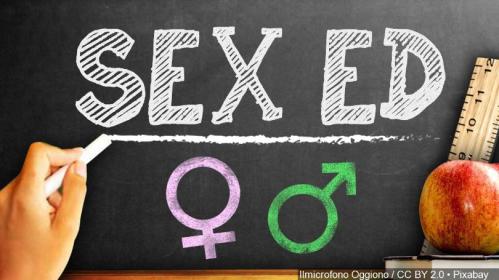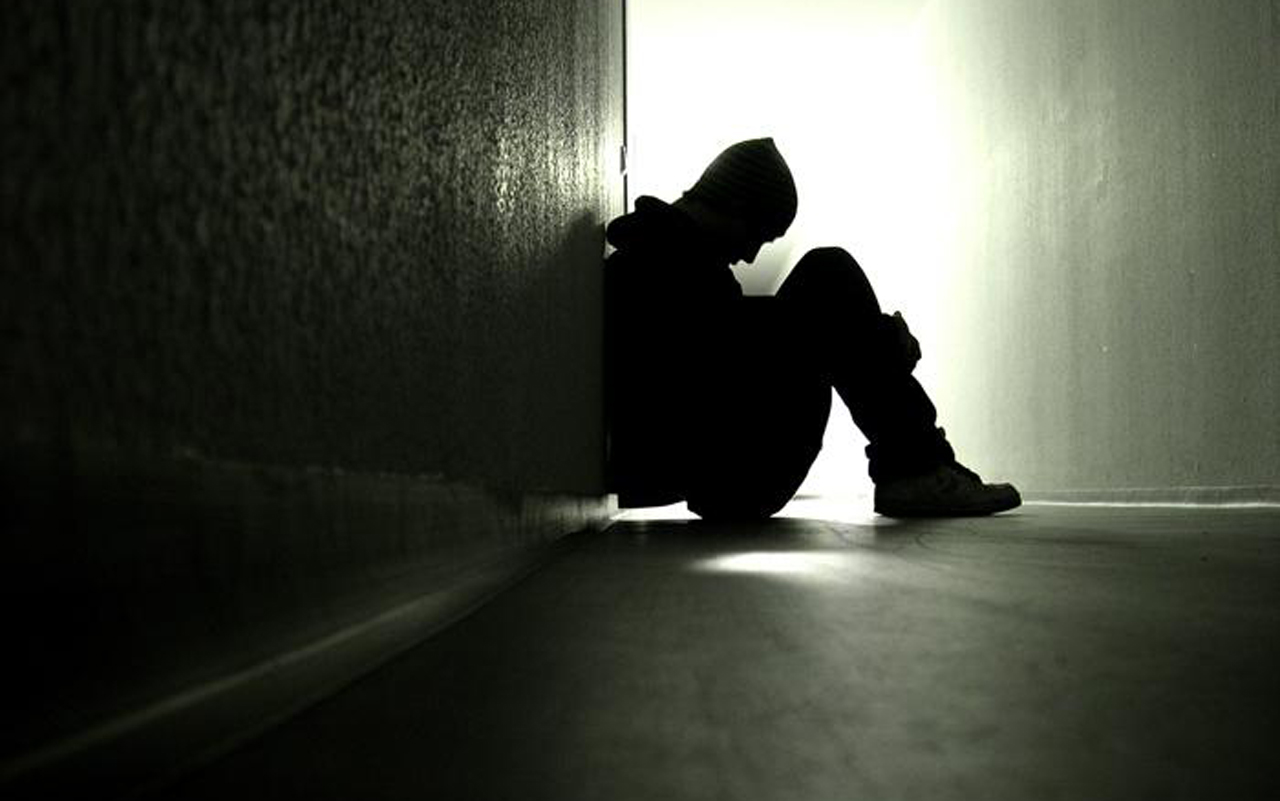
I like to think I had a good education in sex growing up. I grew up in an area that heavily promoted comprehensive sex education and did not solely rely on telling horny teenagers to abstain. On top of that, my parents were very upfront and transparent on sexual issues. They did not lie to me and they did not avoid the issue whenever I asked them questions.
In that sense, I consider myself luckier than most. I’ve heard way too many horror stories about kids getting a form of sex education that’s downright damaging. At the same time, there are some things I wish my teachers and parents had taught me. I feel like it would’ve saved me a lot of stress, confusion, and uncertainty later on in life.
While some things can only be learned through experience, I think in matters of sexuality, insight goes a long way. It’s one of the few acts we’re biologically wired to seek. Even if we find something out on our own, we’re not always going to understand it and that often means making flawed assumptions. That can make things awkward, to say the least.
What follows is a list of minor, but relevant aspects about sex that I wish I’d learned more about growing up. Some of these issues are things my teachers probably couldn’t have mentioned in a health class without getting into trouble with parents, but that’s exactly why they’re worth putting out there. I think these are conversations worth having with young people, especially as we enter a new sexual landscape.
Number 1: What Orgasms Are And How They Differ With Gender

Looking back on my experience with sex education, this feels like the biggest oversight. I learned about male and female anatomy. I learned about pregnancy, contraception, and diseases. I even learned a little about healthy relationship skills. At no point in any of these discussions did orgasms come up.
While I knew what they were, no teacher ever said that word or even hinted that they were a normal part of sex. They either avoided the issue or pretended it didn’t exist. They described sexual function the same way my biology teacher described how animals digest food. This led me to wonder that adults were hiding something from me and my peers.
Later on, as I learned more about sex outside of school, it gave the impression that adults just didn’t want to tell young people about things that felt good. Never mind that orgasms have a lot of health benefits and are a great way for a couple to bond. Not even mentioning them just sent too many mixed messages that only get more mixed over time.
Number 2: Feeling Horny Is Natural (And Not An Affliction)

This was especially common in middle school. Granted, most teachers said that thinking about sex is natural. However, actually wanting it might as well have been the same as wanting to steal a car. In any case where someone might have wanted sex outside of marriage, it was framed as something deviant and wrong.
Again, this was not a religious school. This was a secular public school in a community that was not overly-religious. Even so, every health teacher gave the impression that being horny was no different than having a violent impulse to choke kittens. I’m thankful my parents did plenty to counter that, but it did leave me feeling more stressed than I already was as a teenager.
Number 3: The Sex You See In Porn Isn’t “Real” Sex

Most reasonable adults understand that the sex they see in porn isn’t supposed to mirror actual sex. That kind of sex is designed to be shot, edited, and exaggerated for erotic effects. The problem is that too many reasonable adults, some of which teach health classes to teenagers, assume that only adults are watching porn.
I knew what porn was when I was a teenager. I knew how to access it. Everyone in my class knew as well and anyone who claimed they didn’t were liars. While there were discussions about sex in the media, it never got beyond things like body image and peer pressure. They never actually explained to uninformed teenagers that porn is not a good representation of what sex is.
For men who think they’re supposed to hump for 40 minutes straight and women who think they have to hiss every half-second, it’s an important tidbit that’s worth sharing. It also doesn’t help that porn does a terrible job of depicting romance. Just a simple explanation at how exaggerated it was would’ve gone a long way towards developing a healthy understanding of what non-pornographic sex was.
Number 4: Not Having Sex Isn’t The End Of The World

This issue is similar to the issues associated with the DARE program that tried to convince teenagers to not do drugs. That program not only doesn’t work. It gave me and my peers a very flawed image of drugs for years to come. The way my health teachers talked about sex wasn’t much different.
Beyond skipping the joys of orgasms, they often described sex as this scourge that was spreading disease and misery to countless teenagers. If you weren’t doing it, then something must be wrong with you. At the time, I already had severe self-esteem issues that were compounded by a terrible acne problem that made me feel ugly and unloved.
While no teacher ever said that people who don’t have sex are somehow flawed. They only ever framed people who didn’t have sex as safer and less likely to get diseases. That’s not the same as saying it’s okay, it’s not the end of the world, and it’s actually pretty common. That revelation may not seem like much now, but at the time, it would’ve made a world of difference.
Number 5: Sex Can Be Emotional, Intimate, And Fun

This is a bit more personal for me because I was a closeted romance fan. I’d been a romance fan before I was a teenager and once sex entered the picture, I knew there was a link. My health teachers just did a terrible job of explaining it. They talked about sex as though it was just a formality, like a wedding or a tax refund. Romance and intimacy never entered the picture.
Sex was either just a small part of human reproduction or this dangerous thrill sport on par with juggling chainsaws while wrestling a hungry grizzly. There was no emphasis on intimacy, romance, or just the fun of it all. Couples do have sex for fun. There’s nothing wrong with that. My own parents even told me that. My health teachers, on the other hand, gave the impression they were completely unrelated.
Number 6: Some People Are Just Wired Differently For Sex

This may have been a product of my own teenage angst more than anything else. The way my teachers talked about sex made it seem as though everyone had this scary creature lurking inside them and a good chunk of our lives are spent keeping it at bay. Everyone had to do their part to tame their sexual demons. There was no way around it.
However, that’s not how peoples’ sex drives work. Some people just aren’t that sexual. They don’t get as horny as the average people. When they do, the things that satisfy them are wildly different than the things that satisfy others. Some people have elaborate kinks. Some are happy with a quickie in the shower twice a year.
This idea that everyone has their own sexual makeup wasn’t even hinted at. It made it seem as though everyone in the world, myself included, had the same sexual proclivities. Even though we can’t agree on gods, the afterlife, or pizza toppings, we’re all somehow in agreement on this. I know it sounds like common sense to an adult. To a teenager, it framed the world in a strange, overwhelming way that I could’ve done without.
Number 7: Not Every Woman Goes Crazy On Their Period

I know people don’t like talking about women’s bodies, especially when it comes to that time of month. They’ve been taboo for centuries and for a long list of frustrating reasons. When young men learn about what women go through during pregnancy and menstruation, though, they get the impression that their hormones turn them into meth addicts in withdraw.
Having grown up in a house with multiple women, sharing a bathroom, and just being around a lot of women in general, I know that most women don’t radically change when they’re on their period. Some do have issues. Most are understandable, treatable, and not a reason to fear an entire gender.
In the sex ed I got, I had multiple male teachers joke about how glad they were to not have to deal with periods. These teachers were married, by the way. It made me wonder whether they knew when to leave town or sleep in the basement during certain times of month. It also made me wonder if the women in my family were different because they didn’t seem to go crazy every month.
There’s certainly room to talk about women’s issues during sex ed, even among teenage boys. However, a little perspective would’ve gone a long way. It made being around girls more awkward than it already was. I was a teenager. There’s only so much awkwardness I could handle and I handled it poorly. I’m not saying better sex ed would’ve fixed everything, but it sure would’ve helped.


